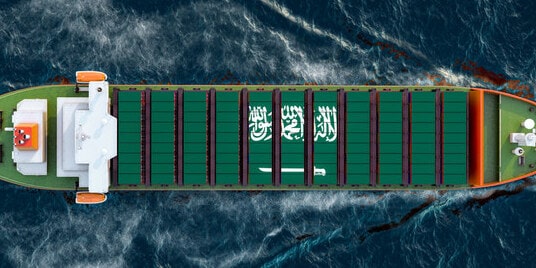The trade ties between Iraq and Saudi Arabia have given a boost to the “Made in Saudi” program.
The “Made in Saudi” program, an initiative launched by the Saudi government to promote local industries, has received a significant boost from the growing trade ties between Saudi Arabia and Iraq.
In recent years, the two countries have been working to strengthen their economic relations, with Iraq becoming an important market for Saudi exports. In 2020, Saudi Arabia was Iraq’s top trading partner, with bilateral trade between the two countries reaching $11 billion.
The trade ties between the two countries have given a significant boost to the “Made in Saudi” program, which aims to promote local industries and reduce the country’s dependence on oil revenues. The program was launched in 2019 as part of the government’s Vision 2030 plan, which seeks to diversify the country’s economy and reduce its reliance on oil exports.
The “Made in Saudi” program focuses on several key sectors, including petrochemicals, mining, and agriculture. The aim is to develop local industries and create jobs for Saudi nationals, while also increasing the country’s exports and reducing its reliance on imports.
The growing trade ties between Saudi Arabia and Iraq have provided a significant boost to the program, with Saudi businesses now exporting a wide range of products to Iraq. Saudi exports to Iraq include petrochemicals, food products, construction materials, and household appliances.
According to data from the Saudi General Authority for Statistics, Saudi exports to Iraq increased by 19% in 2020, compared to the previous year. This growth is expected to continue in the coming years, as the two countries work to strengthen their economic relations.
Commenting on the importance of the trade ties between Saudi Arabia and Iraq, Ahmed Al-Rajhi, the Saudi Minister of Commerce, said: “Iraq is an important market for Saudi businesses, and we are working to strengthen our economic relations with the country. The growing trade ties between our two countries are helping to support the ‘Made in Saudi’ program and promote local industries.”
One of the sectors that has benefited significantly from the growing trade ties between Saudi Arabia and Iraq is the petrochemical industry. Saudi petrochemical companies, such as Saudi Basic Industries Corporation (SABIC), have been expanding their presence in Iraq in recent years, with several major projects underway in the country.
SABIC, one of the world’s largest petrochemical producers, has signed several agreements with Iraqi companies in recent years, including a deal to build a new petrochemical complex in the country. The project, which is expected to be completed in 2024, will create thousands of jobs and significantly boost Saudi exports to Iraq.
The mining sector is another area of focus for the “Made in Saudi” program, with the government aiming to develop the country’s mineral resources and reduce its reliance on imports. Saudi Arabia has significant mineral deposits, including gold, copper, and zinc, but the sector has historically been underdeveloped.
To address this, the government has launched several initiatives to promote the mining sector and attract investment in the industry. The “Made in Saudi” program includes several measures to support the sector, including the development of new mines and the establishment of mining clusters in different regions of the country.
The agriculture sector is also a key focus of the program, with the government aiming to increase local food production and reduce the country’s reliance on imports. Saudi Arabia is heavily reliant on imports for its food needs, with the country importing around 80% of its food products.
To address this, the government has launched several initiatives to promote local agriculture and increase food production. The “Made in Saudi” program includes several measures to support the sector, including the development of new agricultural projects and the establishment of agricultural clusters in different regions of the country.





